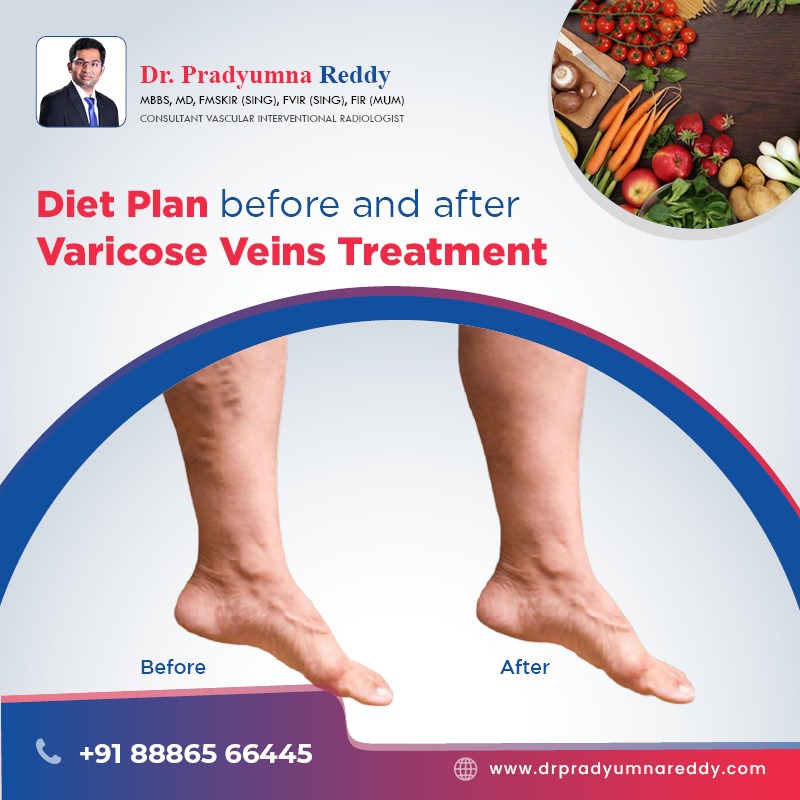Arteries and veins circulate blood throughout our bodies. ‘Varicose veins’ is a medical condition in which the veins become enlarged, especially in the legs. As a result, the veins overfill with blood and appear dark purple in colour that can be seen through the skin. It can cause swelling and pain. Some people may also notice that the veins feel heavy and uncomfortable.
There are many reasons that can cause varicose veins. Among those reasons, lack of physical activity, sedentary lifestyle, obesity, high-fat diets, junk food, and insufficient fibre in the diet may contribute to varicose veins.
Here is a list of changes you can make to your diet to slow the progression of varicose veins and ease their symptoms.
Reduce sodium intake
Your body retains fluid when you consume too much sodium in your diet. The accumulation of fluid in your body can damage your blood vessels, especially your veins. Sodium-rich foods include added salt, canned foods such as sauces, fast food like noodles, soups and meats. Some frozen fast foods are high in sodium as well. Reduce the consumption of these foods and drink more water to control varicose veins.
Add fibre to the diet.
The key to good health is maintaining a balanced diet. Fibre is one of the essential components of a balanced meal. A high fibre diet can keep a check on your weight and decrease the development of varicose veins. In addition, fibre improves digestion and helps keep cholesterol levels under control. Foods rich in fibre include whole grains and their products, brown rice, oats, vegetables like carrots, and fruits like apples. It is recommended to consume 25-35 grams of fibre (i.e. 3 to 5 servings) per day.
Avoid BPA
The chemical bisphenol-A (BPA) is applied to line bottles and cans. All canned foods contain this substance.
A chemical (estrogen-like) that is primarily found in hard plastic and can be found in all groceries. You may develop varicose veins if you consume estrogen-like substances. Hence, in order to prevent varicose veins, stay away from canned foods or buy food packaged that indicates BPA free.
Calorie reduction
A calorie-rich diet leads to gaining excess weight. By reducing just 10% of body weight, varicose veins patients see dramatic improvements. Physical exercise and calorie reduction can help reduce body weight. Keeping a food diary and monitoring your caloric intake can be helpful. If you wish, you may also spread your calorie consumption over 5-6 meals per day. This will help stimulate your metabolism and prevent you from gaining weight.
Consider flavonoids (bioflavonoids)
Flavonoids, often called bioflavonoids, are components found in fruits and vegetables. Flavonoids are responsible for bringing vivid colours to fruits and vegetables like yellow, red, orange and green. Some studies say that long-term consumption of the diet can improve the varicose vein condition.
Their antioxidant and anti-inflammatory properties in bioflavonoids tend to reinforce blood vessel walls. A diet rich in bioflavonoids can prevent damage to capillaries and prevent the formation of spider veins.
Bioflavonoids are abundant in fresh fruits and vegetables. Consider including fruits like blueberries, strawberries, citrus fruits, cherries, papaya etc. Capsicum, sprouts, spinach, and garlic are also rich sources of bioflavonoids.
Vitamin C & E
Other important components worth adding to your diet are vitamin C & E. These vitamins promote the synthesis of two important components, collagen and elastin, which keep veins firm and toned.
Improved blood circulation is another benefit of vitamin C. As a result, these foods rich in vitamin C can prevent blood pooling in veins and blood clots. Grapes, oranges, melons, lemons are rich in vitamin C, and wheat germ oil, corn, nuts & seeds, pumpkin olives, spinach, and other leafy green veggies are good sources of vitamin E.
Drink plenty of water
Water is the main component of our body because it is composed of 60% water. So drinking enough water and staying hydrated can enhance all your body functions. It can also improve the condition of varicose veins. When you consume more fibre in your regular diet, you should probably drink more water.
It is good to begin your day by drinking a glass of water. It is recommended to drink 2 to 3 litres of water per day. Also, fresh fruit juice is an excellent source of water.
Modification of your diet can be a helpful supplement along with the main treatment. You should consult a vascular surgeon in your area if you want to get rid of your varicose veins. Dr. Pradyumna Reddy, one of the best vascular surgeons in Hyderabad. He has treated hundreds of patients suffering from varicose veins problems with the new radiology methods. Call +91 88865 66445 to book your appointment.






